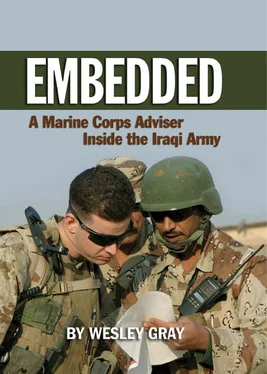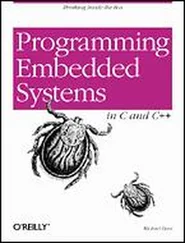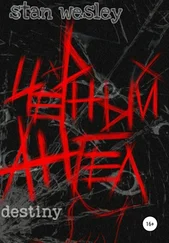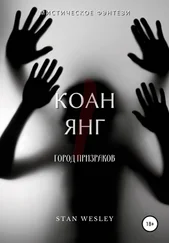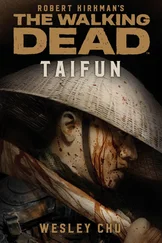The Iraqi food situation was dire, and it opened my eyes to happenings around the camp. One day I saw the Iraqis throwing small wires with fish hooks attached across the electric lines running through the camp. They were using these wires to get the power to cook in their swahuts. Why are they cooking in their swahuts? I wondered. I noticed that when I was in the jundi swahuts learning about Muslim prayer practices, they were eating fresh-caught fish from the Euphrates. It appeared that the entire camp of Iraqis was sustaining themselves by fishing. At this stage we were effectively an agrarian army. I understand that a soldier’s life is sometimes rough, but any professional army should not have to spend 50 percent of its time engaging in hunting and gathering activities while the contractor is collecting fat checks and not providing anything.
I asked a few soldiers and officers around camp what the deal was with the food contract. The problem was multifaceted, they told me. The first issue had to do with security, which may have explained 10 to 20 percent of the shortfall. On occasion the Iraqi supply convoys and food contractors were pirated and everyone was murdered on their way west through Al Anbar Province. The second, and more important issue, revolved around a kink in Iraqi culture that developed over time due to a history of chronic supply shortages: Iraqi people hoard things. In the context of the Iraqi army this occurred when the chow was dropped at the higher-level headquarters, which was then given the responsibility to pass it down to subordinate units. The higher-level units often decided to keep the chow and never sent it to the lower units. They hoarded it for a “rainy day.”
Looking back on my experience at Camp Taji, which is a high-level training headquarters for the Iraqi army, I realized that I had witnessed chow hoarding firsthand. While at Taji we ate lamb chops, chicken breast, and steak; yet the Camp Taji jundi were on the same chow contract our battalion was using. The jundi ’s theory is that soldiers at Camp Taji horde all the chow supplies and send table scraps to the brigades, who then subsequently horde the table scraps and pass their gas to the battalions. It is not surprising that all our jundi leave their AK-47s in their swahut and hang a “Gone Fishing” sign on their front doors.
We May Die from Starvation
Word came one morning from brigade that the emergency supply that had been en route from Baghdad would not be arriving. The Iraqi contractor, the Jabber Company, had been ambushed by Al Qaeda elements near Ramadi. Every one of the workers had been murdered and all the supplies, including the eighteen-wheeler that was hauling the chow, had been stolen.
What did this mean for the jundi and the MiTT? In a nutshell, more fishing in the Euphrates and more wasting of U.S. taxpayer money so the jundi can eat. We needed to purchase the chow using the MiTT’s four-thousand-dollar-a-month slush fund, which pays for things the Iraqi army needs. Food obviously qualifies as a need.
My motivation level wasn’t exactly “sky high” after hearing this news. I had originally bought into President Bush’s rhetoric that if we trained Iraqi security forces to take on the security of their own country, it might allow democratic institutions to flourish throughout Iraq. What I realized was that I would not be risking my life for Iraqi’s future but for hungry Iraqis and an inept and corrupt logistics system that has no chance of being reformed any time soon.
We decided to execute Operation Hungry Tiger. The operation’s name was a parody on the fact that we were heading into town with the sole purpose of buying chow for the Iraqis so they would not go hungry. We commenced the operation at 0600 and convoyed to Barwana. The Iraqis cruised on the way to Barwana; we arrived at 0730 (record time) without incident, il hamdu Allah (thanks be to God). After generating a basic mission plan to secure the market area, buy the necessary chow, and securely egress, we left the northeast Barwana FOB wire and headed through the rustic town of Barwana.
Before we left the gate a short, overweight Marine tottered to an Iraqi Leyland driver and yelled at him in English, “Switch positions in the convoy!” Perplexed, I looked at Adams and asked, “Who the hell is that?” Adams responded in a disgusted tone, “Dude, it’s the boss. He’s yelling at the jundi to get in position. What an idiot.” I replied, “Are you serious? When is he going to figure out we are advising the Iraqi army and not commanding the Iraqi army?”
The market in Barwana was notorious for small-arms attacks. Situated along the eastern bank of the Euphrates, the Barwana market allowed terrorists on the western side of the river to easily shoot across the river and escape without incident.
The lead Iraqi Humvee barged into the Barwana market. Crack! AK-47 fire came screaming through the air, trying to punish the front of the lead Iraqi armored Humvee with little success. I immediately ducked into the armor of the turret and started scanning for the enemy. Luckily, the small-arms fire was aimed squarely at the lead Humvee, which had already entered the market and was far from our Humvee.
Private Ali, the lead Iraqi gunner, who was in the hail of gunfire, ducked into the body of the Humvee, cautiously reached his arm up, and pulled the trigger on his PKC, letting a burst of thirty rounds fly in a skyward direction. These unaimed rounds were not going to hit any insurgents, but they did scare them enough to force them to evacuate the area before anyone else could return fire.
Once the scene calmed down, Adams said, “Dude, this is retarded. We’re risking our lives to buy chow for the Iraqi army? I ain’t walking out in that shit!” I responded, “Seriously man, let’s make sure everything is calm before you guys do anything. I don’t want to tell your wife you died in a heroic battle for Iraqi chow.” The jundi sent out a small team of men to search in the immediate vicinity to ensure there were no ambushes waiting in the wings as our convoy pushed completely into the market area.
“Gray, what’s it looking like up there in the turret?” Adams inquired. “Well, to be honest,” I said, “I can’t see shit to the west, because there is a big-ass palm grove forest; I can’t see shit to the east, because there is a big-ass hill in front of my face; and I can’t see shit to the south, because an Iraqi Humvee is in my way.” Adams interrupted me. “Gray, where can you see?” I replied, “Well, to the north things look clear. You can get out and buy some chow, I think.” I paused for a moment and then further antagonized Adams with false motivation. “Oohrah, Devil Dog. Go get some action!” Adams, not amused, responded, “Jamal—fuck you.”
Once security was set Adams, the funds handler (Corporal Jellison), and Moody (terp) exited the vehicles to negotiate prices and quantities with the locals. As Adams and his posse worked with the locals, I took a moment to enjoy the scene. I had to pinch myself. The Barwana market was so foreign to my American eyes that I needed to check that I wasn’t dreaming that I was in the Indiana Jones movie Raiders of the Lost Ark . The marketplace itself was small, perhaps a football field in length, but it was vibrant with life. Each shop was a stall the size of a small garage space, typically fitted with a tin awning and a couple of wrinkly faced merchants sitting in chairs enjoying the desert heat. Freshly slaughtered lamb carcasses hung from meat hooks outside stores, shoe stores had their shoes nicely assorted in lines, jewelry shops had all their goods on display, and the farmers had their produce products nestled in the shade. My guess is that when the Ottomans came to these same Arab lands many centuries ago, they saw the exact same thing.
Читать дальше
